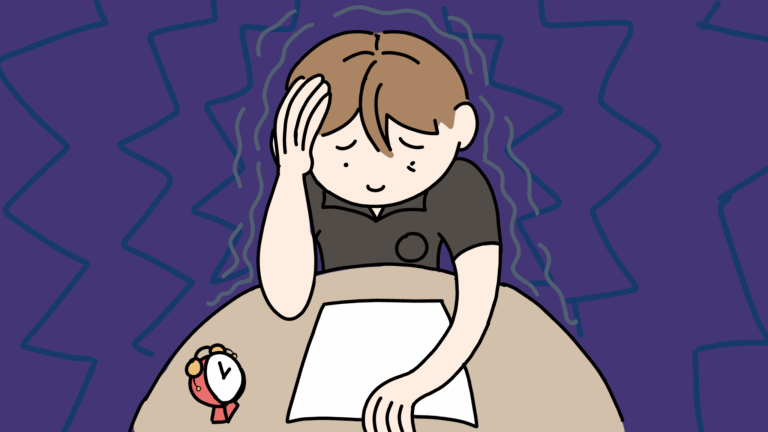Is it possible to be so unaware of how unaware you really are? I’m talking about the spreading of important issues among the student population in schools.
When I say ‘important issues’, I’m sure a few things come to mind. Drugs, alcohol use, cyber bullying, etc. They’re all problems that have made their way for decades onto inspirational posters you see in your health class. It’s not the problem that is so outdated, but the applicability. You’ll see a lot more glazed over stares during these assemblies than you probably would in anything else, and not solely because it lacks the interest factor.
Let me break it down briefly. It’s an annual thing for schools to spread awareness about the negative effects of, say, drug or alcohol abuse, as well as advising us on how to avoid being bullied over the internet. “Don’t let peer pressure affect you.” “Make sure never to give personal information away on the web.” “There are countless health risks for irresponsible substance abuse.” “Anything you put on the internet is there forever.” They’re all bullet points that I’m sure have been heard before, and while I’m definitely not advising against what they say, they’re definitely not relative to every day life. Right now I have seen way more of my peers struggling with other problems that have never once been covered by schools or programs, than I have ever seen someone be picked on over the internet. We’re sitting through yet another hour long lecture about the corrosion of your teeth if you try Meth, but what’s easier to get a hold of? Crystal Methamphetamine or a razor?
Nobody believes they’re beautiful any more because nobody feels like they have the right to.
That’s right. Cutting, for example, is something that I’ve never heard even once be addressed, yet more and more people are suffering from it’s addiction. Nobody wants to believe its horrible reality, but I personally have seen people in real life and over the internet struggle with something that most adults probably have no idea about. There’s never been an assembly on how to handle internal problems other than the extremely vague and overused tips we already know (eg. Make sure to get plenty of sleep, write down your feelings, exercise regularly to relieve stress, etc.); and that’s the first step that’s leading today’s youth in the wrong direction.
Eating disorders come next. This time in our lives is especially fragile when it comes to body image. We’re exposed to thousands upon thousands of images and advertisements that plant themselves in our subconscious, reminding us how we’re supposed to look. Should I be this specific size? Why don’t I weigh this much? Do some random parts of my body touch when they ‘shouldn’t’? Questions that cross our minds every day, and yet the answers are always subtly pounded into us. I would absolutely hate to think about the statistic of teenagers that are more likely to skip a meal as their way of losing weight rather than doing something healthy. In fact, I would hate even more to think about the amount of us who feel the need to lose any weight at all. Nobody believes they’re beautiful any more because nobody feels like they have the right to. It sounds shallow to care this much about how you look, but when an issue like this is affecting over one-third to one-half of the population of students, even ending lives, that’s when it needs to stop. People can’t look this over any more, or deem it a ‘phase’. This is a real problem that so many people are shamed under, and yet all the knowledge we are taught is how not to get too close to strangers on Facebook. What do you do when your friend is always going to the bathroom for a purge? What about when her ribs are starting to show? Why am I suddenly afraid to finish a meal? Why is she so obsessed with calorie counting? Should I be too? These questions will continue to roll in as the statistics grow higher, and the answers still remain clouded behind outdated issues from years prior.
Mental illness is a touchy subject, and I understand that not everyone would be so open about such a thing, but it presents itself within young people a lot more than one may think. According to a statistic found from the YoungMinds organization, every 1 in 10 students ages 5-16 suffer from a diagnosable mental health problem. That is roughly three students per class. If you’re a teacher, or even a student, think about those three in your class that could be under the immense pressure of their own mind. It’s an internal struggle and no one has any clue as to what to do about it. Anxiety disorders, for example, according to the Anxiety and Depression Association of America is the most common mental illness. According to a study led by Jean Twenge, a San Diego State University psychology professor, depression rates are five times worse than they were when taken during the Great Depression Era (Psychcentral.com). It should not be so common for people to claim they want to kill themselves, and it definitely should not be so easy for morbid pictures of suicides and self harm wounds to be exposed on social media sites. Tumblr, as my main example, is probably the easiest place that I have personally seen for people to even glorify such events and problems. Teens are exposed to these types of things on a daily basis, and if the convenience of it all isn’t alarming enough, the long term effects it could have in a few years will be.
Right now, our minds and ways of thinking are so easily influenced by what everyone else is doing. It’s a danger that people are so adamant about thinking otherwise just because they don’t want to believe it. Taking a moment to simply address these points could steer at least a few people in the right direction. The only thing worse than ignoring someone’s problems is telling them that they’re not valid enough to have.






